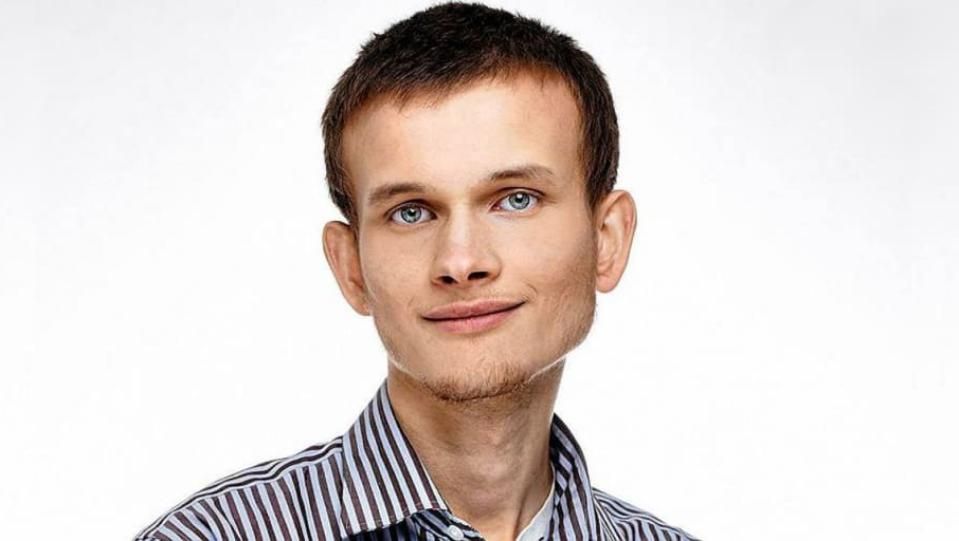Vitalik Buterin, the 27-year-old co-founder of Etherеum, has become the youngest crypto billionaire. The Canadian of Russian origin entered the list of billionaires after his digital currency – the ether, jumped over 3,200 dollars. As of Monday, Buterin’s crypto portfolio contains about 333,500 ethers worth $ 1.029 billion.
He drinks juices, walks in different socks and does not take his eyes off his laptop. Speak Krypton – sounds like Klingon in the ear of anyone outside the crypto community. Meet the second youngest billionaire in the world and the youngest person to have amassed such fantastic wealth with cryptocurrency.
As he is not the most sociable, little is known about him. For example, he is 186 cm tall and hardly weighs more than 70 kg. Undoubtedly, he is a genius, but it is not known what his IQ is. If some publications are to be believed, he is 257. Some call him Einstein of the 21st century. He may be suffering from autism. No one has heard of having a girlfriend. His loneliness is not a conscious choice, he just seems too busy to realize that he is alone.
He was born in Kolomna, Moscow Oblast, on January 31, 1994. When he was 6, his parents moved to Toronto, Canada, where they have more job opportunities, although his mother, Natalia Amelin, moved to Russia in 1995. he started working as a CFO at Heinz, and his father claims he was already a millionaire when they arrived in Canada.
In Toronto, Natalia became a financial analyst at Unilever and currently works for Pitney Bowes. She is the co-founder of the non-profit organization CryptoChicks, which develops educational programs for blockchain and cryptocurrencies for young people around the world. His father Dmitry is a programmer. In 2001, Buterin Sr. founded BonaSource Inc.
Vitalik learns to speak quite late, but his father is not particularly worried. “Every child is unique. He will speak when the time comes. ” It turns out that the language that the child learns first is that of mathematics. At the age of 4-5 Vitalik plays with Excel, as other 6-year-olds solve puzzles or build houses with Lego. At the age of 9-10 he wrote his first computer games.
In third grade, his teachers in Toronto offer to include him in a gifted children’s program, which separates him from his friends. He developed his incredible talent in mathematics and programming, as well as in economics. He is known for multiplying three-digit numbers in his mind twice as fast as his gifted classmates. Vitalik is so absorbed in his interests that he hardly realizes that his classmates gather after school, and no one invites him. “I think I was in fifth or sixth grade when I noticed that they were talking about me as if I were some kind of genius,” says Vitaly. “I’ve thought many times why I can’t be normal, have average grades, be like everyone else.”
He was 17 when his father introduced him to the principle of cryptocurrencies. And the more he gets involved in bitcoin, the more he expands his network of contacts. At this age, except for a few like-minded people he met at a Bitcoin conference in Toronto, all his friends are virtual. In 2013, he attended a conference on the bitcoin community in San Jose, California. There, as a reporter for Bitcoin magazine (he is also the creator of the publication.) While listening to the discussions in his head, the idea of Ethereum crystallized – a decentralized computer platform that works on the basis of smart contracts (smart contracts) to avoid restrictions on bitcoins. “I thought, ‘No, that’s too good to be true.’ I decided to consult with five professional cryptographers. I imagined being told, “No, dude, it’s not going to happen. This is complete nonsense. ” Nothing like that happened. In two weeks, I was sure the idea made sense. “
The development of the first Ethereum network took place through group funding (crowdfunding) in 2014, and the first version started in 2015. The genius programmer remained in high school – leaving college because he has much more interesting and important tasks.
Outside of cryptography and Ethereum, Vitalik is interested in topics such as the prolongation of youth and human life, donating a significant amount to conduct such research. It seeks to support online education “of all kinds”. He is excited about reducing poverty around the world and mastering space.
It is a hidden lemon
We have known Vitalik since 2012. I recently saw him on the subway. I look at him – he sits and clicks on the phone, such a thin, hunched, wearing two different Hello Kitty socks, and I shout to myself: “Here is this man threatening to collapse the entire financial system. This guy has built the infrastructure that threatens to overthrow the world’s most important financial institutions. ” That’s what he is – a hidden lemon.
Michael Perklin, head of security at Canadian blockchain consulting firm Ledger Labs
–
This man is a genius
I have always been very passionate about cryptocurrencies. But when I received the Ethereum White Paper and read it, I was shocked. My chin just hung. I said to myself: This man is a genius! I have to work for him at all costs. ” And so it happened.
Stephen Toall, former head of public relations at Ethereum
–
Connects points at a higher level
“Now that I look at our communications with Vitalik, our text exchanges, I think he is much, much happier, much more confident in all the things that are happening with Ethereum. In the beginning he was concerned with practical problems – research, cryptography. There are currently far fewer such issues to resolve. At least he doesn’t have to deal with them personally, because so many other wonderful, smart, amazing people work with him. Now Vitalik has more time for abstract and philosophical thinking. Or to put it another way – now it connects the points at a higher level, the level of systems and the way they interact with society and people. I am very proud of my son.
Dmitry Buterin, Vitalik’s father
–
First disappointments
As a teenager, he was an avid World of Warcraft player until 2010, when Blizzard released an update to the game that changed the properties of his character. This throws him into deep disappointment and he gives up the game forever. But it also realizes how changes to the centralized program can have negative consequences that consumers are powerless to prevent.
– .

:quality(85)//cloudfront-us-east-1.images.arcpublishing.com/infobae/QZR5MX6KES2XA4FAZZVVEG5LGE.jpg)
